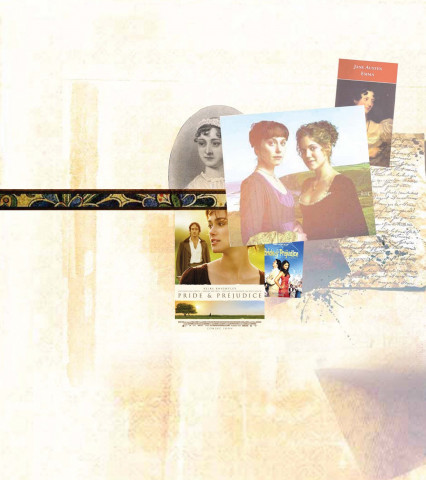Jane Austen’s influence lives on

The adaptations have become a part of popular culture, most notably, the Colin Firth ‘wet shirt’ scene from the BBC’s adaptation of Pride and Prejudice that has made millions swoon since it was first aired in 1995. The Guardian called the scene ‘one of the most unforgettable moments in British TV history’. Colin Firth’s wet shirt and the BBC adaptation, even features in Helen Fielding’s books Bridget Jones’ Diary and Bridget Jones: The Edge of Reason, as Bridget Jones and her friends are obsessed with the plotline and Firth’s role as Darcy.
Other prominent adaptations include Ang Lee’s Sense and Sensibility, which had Emma Thompson, Kate Winslet and Hugh Grant in the cast.
Bollywood hasn’t been immune from Austen’s influence either. A heavily critiqued desi adaptation of her work was Gurinder Chadha’s Bride and Prejudice which starred Aishwarya Rai. The other major adaptation releases this August, called Aisha, which stars Sonam Kapoor and Abhay Deol. The film is an adaptation of Emma and is based on the lives of the upper crust in Delhi.
But what makes Austen so influential – particularly in the subcontinent – is the resonance of the themes with life in this part of the world. Marriage, proposals, courtships, scandals and society gossip are a part of every society, but Austen’s work appears tailor-made for Pakistan. With her books’ marriage proposal hungry matrons, and men reluctant to tie the knot or being far too confused about their own feelings, it is still a rather accurate depiction of society today.
Austen’s work has also spawned several spin-offs, including the book Jane Austen’s Guide to Romance. The book is described as being “full of concrete advice and wise strategies that illustrate how honesty, self-awareness and forthrightness do win the right man in the end and weed out the losers, playboys and toxic flirts”.
The upcoming adaptation, Aisha, may serve to reintroduce Austen’s work to an audience that may not have read the original work.
The film’s lead actor, Sonam Kapoor, says she has “read all of Austen’s novels. They are all so girly and tie up perfectly in the climax.”
According to a report in Bollywood Buzz, Kapoor feels South Delhi’s socialites have a lot in common with Austen’s characters.“South Delhi’s high society is just like that of Jane Austen’s England. After all, Delhi girls are forever obsessed with getting the right man, right family and right wedding clothes for their marriage.”
Correction:
The above article has been revised to reflect the following correction:
It included Rupert Everett in the Ang Lee's version which was not the case.
Published in The Express Tribune, July 30th, 2010.



















COMMENTS
Comments are moderated and generally will be posted if they are on-topic and not abusive.
For more information, please see our Comments FAQ